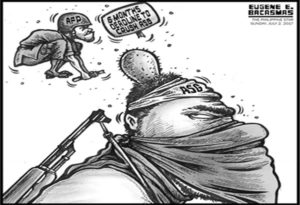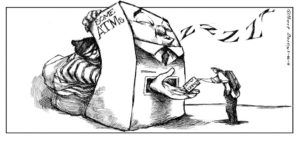Cyber attacks & nat’l elections
New cyber attacks have been reported by some nations in Europe, notably Ukraine, and the United States. Computer systems of companies were reported broken into by malicious software that locked up their files, followed by demands for ransom for their release. Victims of the cyber attacks included government offices, banks, supermarkets, and hospitals.
Attacks are increasing in the cyber universe. Some attacks were made to inflict damage on specific organizations, including governments; acquire sensitive data as part of corporate espionage; steal credit card and other financial data for financial gain; and sabotage intelligence gathering operations of some countries.
But the most notorious cyber incident in recent weeks has been the charge that Russian hackers were able to invade the computers of election officials in the United States in the last presidential election and thus managed to affect the results of the election. This is now under official investigation by an independent special counsel appointed by the US Department of Justice.
American officials are concerned that the Russian hacking operations were an attack on the very core of American democracy, its elections. Some officials have thus begun calling for a return to the use of paper ballots, to ensure that there is a paper trail that can be followed in case of an investigation, instead of the present system in many US states where everything is done by computers and there is, therefore, no paper record that can be checked.
The hazards of electronic voting were realized early in some counries of Europe. Germany ended its system of electronic voting in 2009 after the German Federal Constitutional Court ruled that with the impossibility of meaningful public scrutiny, electronic voting is unconstitutional.
In the Philippines, questions have long been raised about the reliability of computerized voting, particularly in the consolidation of precinct results and their transmission to the national election center. Until there is conclusive proof of computerized election cheating, we will have to live with our present electronic voting system.
But all over the world, there are increasing reports of hackers getting into computer systems and blocking them for ransom, or exposing their secret files, or even affecting election results. It is a choice between convenience and security, with commercial enterprises said to be comfortable with a certain degree of fraud.
But governments generally have zero tolerance for election fraud. Thus the ongoing US Department of Justice probe of Russian hacking in the last election that allegedly benefited President Donald Trump .
It has not reached that point in Philippine elections but we must be on constant alert and be ready to take similar action should we find that our elections have become unreliable and, therefore, meaningless because of cyber attacks.













